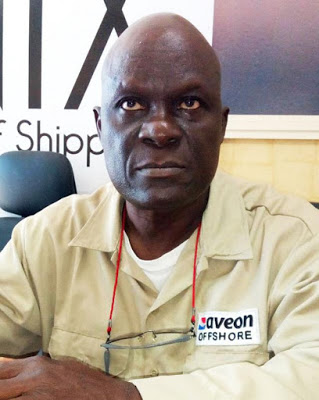President of the Nigerian Association of Master Mariners (NAMM), Capt. Tajudeen Alao, has described the establishment of a maritime bank in Nigeria as a required pillar that can grow shipowning and operations in-country by indigenous players.
In this interview, Capt. Alao speaks on the need and importance for establishing a maritime bank that would understand the financing needs and the nature of the business of shipowning and it peculiar challenges.
Besides the need for a maritime bank, the master mariner shares his thoughts on what should happen with the dedicated local shipping development fund, the Cabotage Vessel Financing Fund (CVFF).
What is your position about establishing a maritime bank thus far?
Of course, I support the establishment of a maritime bank in Nigeria. But I am of the position that it should stand alone; it should not be established with the CVFF money.
Who should be key stakeholders in the floating of a maritime bank?
The maritime bank should be supported by government, as a financial institution. But, it is the industry people who should be shareholders. The CVFF is money contributed by law for a specific purpose.
The regional maritime bank that the Federal Government has signed into is at the top, for the whole region, like the Africa Development Bank. That one can be accessed by anybody. But the one close to us, which we can easily access, should be the home maritime bank, because the interest rate would go along with peculiarities of the maritime operations.
The people who would work there would be trained and specialised, not just the general bank staff; they are people who would understand the implication for the maritime industry. In that area, the profit margin may be small, but the income is taxed. Like in Japan, the interest rate in maritime financing is 1 per cent. If you take up to a million USD, it is half a per cent, provided it is channeled towards ship acquisition asset.
Financing could be very tough. So how would they generate money for that bank?
There are monies specified for all these banks; for agriculture, for maritime, already existing, and with longer tenure for repayment. Of course, they would factor in the reality that there may be loss of earnings, like when a tugboat is not having jobs to do. All those would be factored in. But, something that is close to your doorstep, just like when they build a finance house, should be the national one. This will help shipping agencies, ship chandlers and so on.
Some shipping agencies may spend their money on a ship and the ship would go round the whole world or go bankrupt. That money will take a long time. Where would they access money from, but a maritime bank, to do their operations?
What is your position on the CVFF?
The CVFF was a private initiative before the government took it over. Someone like Agbakoba crafted the Cabotage Act to protect the indigenous shipowners, not international shipping business. It was to enable the local players have a contribution where they could access funds from. People contributed and they are entitled to access the funds, as stated in the Act. But government now hijacked it saying it is not their own to have a say anymore.
Consider this scenario that I bought ships, my ships have worked for so many years and I have contributed to the fund, but I cannot replace the ships, because I don’t have where to get money to replace the ships.
Borrowing interest rates are too high from commercial banks in Nigeria. The CVFF is purposed for supporting the indigenous ship owners. Therefore, it should be given to the people. With a proper structure, you can know the players, if those are part of any concerns.
If they say for this purpose, on equity, like four to five companies should come together to lift crude, you can have your own business and have a quoted company that you all have a stake in.
What is the biggest worry for now?
Now, the NNPC has asked the indigenous ship-owners to lift cargo, but they don’t have money, they don’t have ships. They have given the Shipowners Association of Nigeria (SOAN) an opportunity, but no money, because they cannot access the money they have. And if you want to get normal bank loan, it is a long process with very high interest rate.
So, we must have those layers; the contributory side, the purpose -set-up maritime bank and the regional one, because NEXIM is there, African Development Bank is there, Agric has it.
We have the ship acquisition, ship-building fund under the shipping degree; it is still there. But nobody is talking about it, whereas, it is the basis for shipping. Where is the shipping policy Degree 10 of 1987? Where is the ship acquisition fund? Nobody is talking about that 3 % that NIMASA is getting anymore. The money was 2 per cent, 1 per cent was for administration. So, that 2 per cent bulk money goes to government. Then, the 2 per cent local cabotage money has come in again.
Capt. Alao shared his thoughts that defining a structure for proper financing for shipping development should have long been put in action before this time, even as that appears to yet have such committed attention.

































































